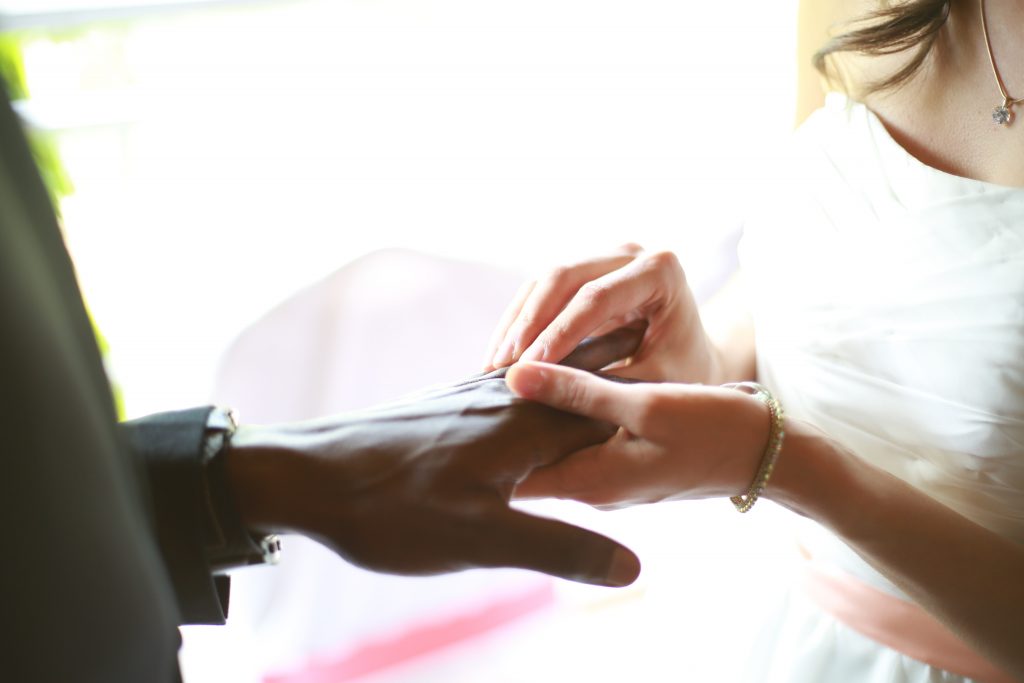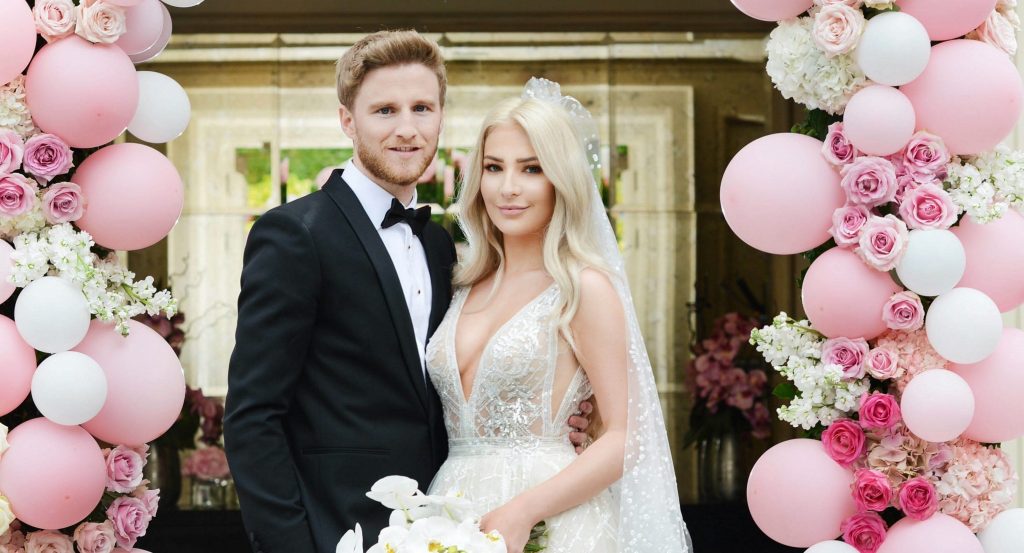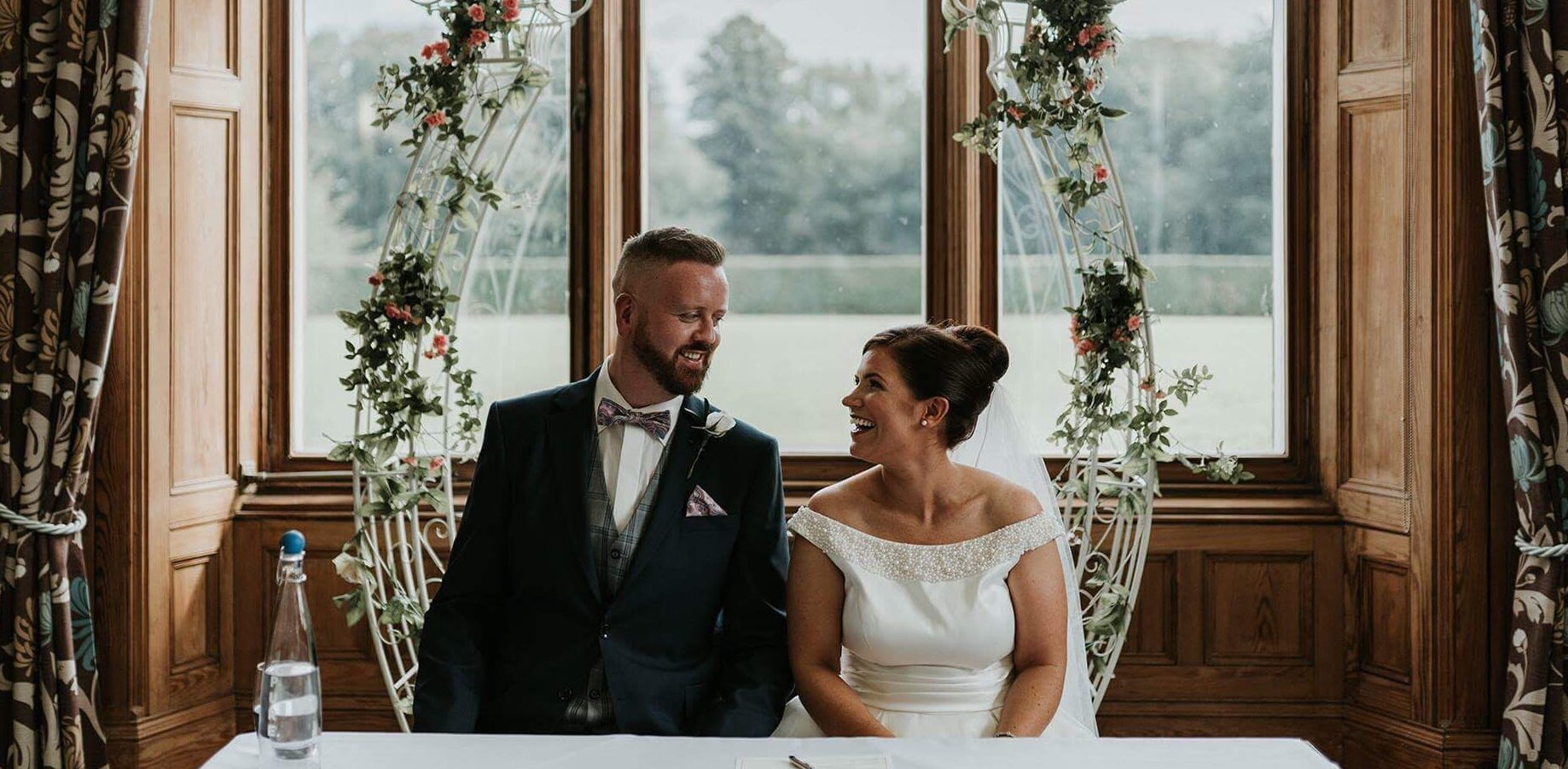The first humanist weddings took place this weekend in Northern Ireland. This follows the Belfast Court of Appeal’s ruling in June that humanist marriages must be legally recognised.
On Saturday 25th August 2018, Emma Taylor and Paul Malone were married at Queen’s University Belfast, while on Sunday 26th August 2018, Alanna McCaffrey and Ronan Johnson tied the knot in County Fermanagh.
What is Humanism?

Stock Image of Wedding. Image Credit: Andrew Itaga / Unsplash
Humanism is a non-religious approach to life which trusts scientific method, evidence and reason. According to Humanists UK, humanists reject the idea of the supernatural, and make their ethical decisions based on reason, empathy, and a concern for human beings and other sentient animals.
A humanist wedding is a non-religious ceremony that is deeply personal and conducted by a humanist celebrant. It’s entirely hand-crafted and reflective of the couple’s humanist beliefs and values, and is conducted by a celebrant who shares their beliefs and values.
We’re a non-religious couple and we wanted a very personalised and meaningful ceremony.
Alanna McCaffrey and Ronan Johnson
Alanna McCaffrey and Ronan Johnson, who were married on Sunday, explained they’d wanted a humanist ceremony so it felt meaningful for them.
‘We’re a non-religious couple and we wanted a very personalised and meaningful ceremony for our marriage,” they told RightsInfo.
“That’s why we want a humanist one – because you can customise it to suit yourself. It seemed the most meaningful option for us, and we’re delighted that such ceremonies will now be legally recognised.’
The High Court ruling
 Eunan and Laura O’Kane (neé Lacole) on their wedding day. The couple were instrumental in humanist weddings becoming legally recognised in Northern Ireland. Credit: Eunan and Laura O Kane.
Eunan and Laura O’Kane (neé Lacole) on their wedding day. The couple were instrumental in humanist weddings becoming legally recognised in Northern Ireland. Credit: Eunan and Laura O Kane.
Marriage is a human right, outlined in article 12 of the Human Rights Convention.
It states: “Men and women of marriageable age have the right to marry and to found a family, according to the national laws governing the exercise of this right.”
And while humanists have not been denied the right to marriage, it’s been a gradual process for the solemnisation of humanist marriages in the UK. In Northern Ireland it’s essentially been down to two citizens fighting for what they believe in.
In 2017, model Laura Lacole and Leeds United footballer Eunan O’Kane, campaigned for legal recognition and solemnisation rights for humanist marriages and, supported by Humanists UK, took their case to court in an attempt to change the law.
Laura O’Kane (new) Lacole told RightsInfo: “You should always stand up for what you believe in, and we felt that we would only be adding to our society.
“Northern Ireland is a place that recognises a wide and diverse range of different marriage ceremonies, and I couldn’t understand why humanist ceremonies weren’t also provided with that privilege.”
Whilst the High Court ruled in their favour, the decision regarding other couples pended approval by the Court of Appeal of the Northern Ireland Government.
It was only in June 2018 that a court ruling allowed others to have humanist marriages.
This law change was a long time coming, and it was stressful and costly. We didn’t want to be the first, and last, humanist wedding!
Laura Lacole
Laura added: “This law change was a long time coming, and it was stressful and costly. We didn’t want to be the first, and last, humanist wedding! When people stood in our way, it spurred us on even more to achieve it for ourselves and others.”
Richy Thompson, Director of Policy at Humanists UK, added: ‘We’re delighted that the first humanist marriages following the Court ruling are now taking place, and many congratulations to the couples involved.”
Humanist Marriages in England and Wales lag behind.
 Emma and Paul Malone enjoyed a legally recognised humanist marriage ceremony in Belfast on 25th August 2018 . Image Credit: Thompson Photography
Emma and Paul Malone enjoyed a legally recognised humanist marriage ceremony in Belfast on 25th August 2018 . Image Credit: Thompson Photography
Since humanist marriages gained legal recognition in Scotland in 2005, they have had a transformative effect – now becoming the second most popular type of marriage.
In the first year there were just 85 humanist marriages, a figure which jumped to almost 7,000 in 2017.
In the Republic of Ireland, humanist marriages gained legal recognition in 2012 and in 2016 around 8% of legal marriages were humanist. However, in England and Wales, humanist marriages are yet to be recognised legally.
More than 1,000 couples a year do still take humanist weddings, but they must also have a civil marriage in order for the ceremony to be legally recognised.
“The UK Government must now surely recognise how popular such ceremonies have been everywhere they have become legal,” added Richy Thompson. “It must recognise the urgent need to extend such recognition to England and Wales as well.”






